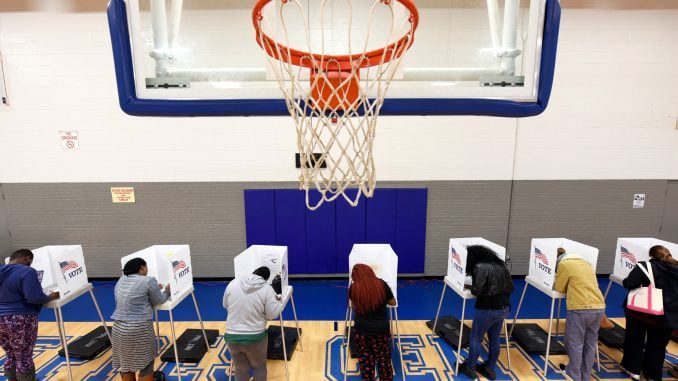
For the first time in North Carolina history unaffiliated voters outnumber one of the two major political parties. This fact, which is keeping up with political trends nationwide, is catching the attention of state politicos. The release of the NC State Board of Elections data this month showed that the political unaffiliated barely surpassed registered Republicans in the state. The unaffiliated number surged to a little over two million, which is just a minuscule edge over the number of those registered with the GOP statewide.
A few partisan progressives on social media who either glossed over the data or didn’t understand it, used the updated numbers as a talking point to bemoan what they consider should be automatic wins for Democrats at the ballot box. Some shifted the blame to Republican redistricting for their electoral losses. With more voters to lose, Democrats are shedding registered voters across the state in the post Barack Obama exuberance. Lost in their analysis is that Democrats may have advantages, but they still must go out and win over traditional constituencies to achieve electoral success.
“It is imperative to not misinterpret this shift as reflective of a problem for Republicans,” declared Civitas Elections Analyst Susan Myrick. “On the contrary, it is North Carolina’s Democrats who should be concerned. They are the only segment of the voter registration rolls to have decreased since 2009, when Democrats made up 45.7 percent of the voter rolls. Today they are at just 38.9 percent of the total voter registration.” Executive Director of the state Republican Party Dallas Woodhouse too pointed out the net loss for Democrats. “We’re going up and the Democrats are going down,” he declared. While Republicans overall share of voters has declined too, they have seen a net gain of a little over 50,000 voters since 2009.
However, there is certainly plenty for Republicans to be concerned about. Particularly since the Republican Congress in Washington are doing no favors for the party’s brand nationally. The inability to tackle meaningful reforms like a repeal of Obamacare and fiscal restraint, despite majorities in both chambers on Capitol Hill, could spell potential doom for Republicans in the midterm elections. Like many others, Republican North Carolina Congressman Mark Walker recently sounded the alarm for Congress to get to work or potentially lose their majority.
A Monday piece in the Washington Post reporting on site from Oxford, North Carolina further points, at least anecdotally, to a loss of confidence in the GOP and Democrats too. Profiled in Oxford are older voters who have historically been loyal to the Democrats but are solidly still backing Trump against both parties. One line from the article distills much of North Carolina’s political thinking of many voters: “‘I am proud to say I am proud of Trump’, said Mildred Oakes, 76, a former registered Democrat who is no longer affiliated with a party.”
Millennials of course represent the highest demographic among the politically unaffiliated. Part of that stems from being turned off from an increasing partisan chicanery, resulting in cynicism in the political process. But who isn’t cynical in today’s process?
The results of the rise of independents in North Carolina may mean for more volatile elections and an increasingly fickle electorate. With Democrats rapidly lurching leftward and weighed down by identity politics, it’s unclear if they can capitalize on the dysfunction and paralysis that plagues much of the GOP infighting in Washington.
While much of our culture is increasingly consumed by political obsession and virtue signaling, as the recent Emmy Awards can attest, perhaps more and more political independence will be good for the electorate and bad for a broken political establishment in Washington. After all, many Americans need to relearn that political parties and politics are ultimately unable to solve the deeper issues that plague the nation. Furthermore, limiting government is the first step to accomplishing the goal of extracting ourselves from all the political chaos.



